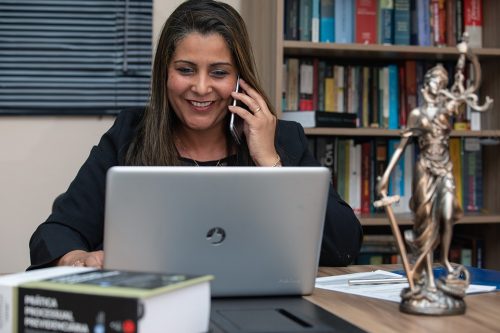Common Strategies Criminal Defense Lawyers Use to Protect Clients’ Rights
In criminal law, defense strategies are key to how attorneys protect their clients’ rights and ensure a fair trial. This area of law isn’t just about challenging charges; it’s about upholding justice in a system that must balance guilt and innocence. Criminal defense requires careful planning and attention to detail, giving defendants the chance to build strong cases. Without effective strategies, wrongful outcomes become more likely, which can undermine public trust in the legal system.
Below we’ll explore the various tactics a criminal defense lawyer might use, from questioning the reliability of evidence to leveraging constitutional rights. By analyzing prosecution arguments, exposing inconsistencies in witness statements, and negotiating plea deals, it explains how attorneys build solid defenses. It also looks at how they influence jury perceptions by presenting alibis and alternative explanations, all while adhering to ethical standards.
How Evidence Impacts a Defense
Evaluating evidence is key to building a strong defense, as it helps defense attorneys find weaknesses in the prosecution’s case that could benefit their clients. This involves carefully reviewing the evidence, how it was collected, and how it is presented. Defense lawyers often look for inconsistencies, like differences in witness statements or gaps in the prosecution’s story, which can cast doubt on its reliability.
They also pay attention to what’s missing, as this can be just as important. By analyzing the evidence closely, defense attorneys can challenge its validity, strengthening their case. These efforts can change the course of a trial by offering new interpretations of the facts and weakening the prosecution’s argument.
Utilizing Constitutional Protections
Constitutional protections are key to criminal defense, providing defendants with important legal rights that ensure justice. The right to a fair trial guarantees that everyone is treated equally in court, following clear rules and procedures. Defense attorneys rely on these protections to challenge any bias or mistakes that could violate their client’s rights.
Another key protection is the right against illegal searches and seizures, which prevents the use of improperly obtained evidence. By using these rights, defense attorneys can request the exclusion of inadmissible evidence, potentially changing the outcome of a trial.
Developing Alibis and Alternative Theories
In criminal defense, creating alibis and alternative theories is a key part of the strategy. Alibis are carefully built to give defendants solid, evidence-based explanations for where they were, challenging the prosecution’s timeline. This involves collecting supporting evidence, such as digital records and witness statements, to present a story that runs alongside the prosecution’s.
Alternative theories, meanwhile, offer different takes on what happened. By suggesting these, defense attorneys aim to raise reasonable doubt and weaken the prosecution’s case. These stories are designed to fit with the evidence, ensuring they are believable in court. The goal is to present different views of the incident, encouraging jurors to reconsider the prosecution’s claims.
Challenging the Credibility of Witnesses
Examining the reliability and credibility of witnesses is a key tactic in criminal defense. It helps reveal biases, inconsistencies, or hidden motives that might affect their testimony. Defense attorneys carefully analyze witness statements, comparing them with other evidence to spot contradictions. This close review can show if a witness is biased, maybe due to personal ties or interests, that could influence their account.
Additionally, looking into the reasons behind a witness’s testimony, like coercion or outside pressure, can uncover motives that weaken their credibility. By challenging these factors, defense lawyers aim to discredit unreliable testimony and fill in the gaps in the prosecution’s case.
Negotiation and Plea Bargains
Strategizing around plea bargains is an important part of criminal defense, offering a practical alternative to the risks of a trial. Attorneys carefully weigh the evidence against the potential risks and rewards of going to trial. This process involves analyzing possible outcomes, such as reduced sentencing versus the uncertainty of a jury’s decision. Defense attorneys must manage this process quickly, aiming to get the best deal for their clients while ensuring it aligns with their client’s interests and long-term goals.
The decision to accept a plea or go to trial depends on factors like the strength of the evidence, the client’s goals, and the impact of a criminal record. For prosecutors, plea bargains help resolve cases efficiently, while for defendants, a plea deal can mean less severe penalties, though it requires careful consideration of the trade-offs.
Criminal defense strategies play an important role in ensuring fairness and justice within the legal system. By carefully examining evidence, challenging witness credibility, and leveraging constitutional protections, defense attorneys help build strong cases that uphold their clients’ rights. Developing alternative theories and alibis introduces reasonable doubt, while negotiating plea bargains offers practical solutions to minimize risks. Each tactic requires detailed analysis, strategic thinking, and a deep understanding of the law. Together, these methods contribute to a more balanced trial process, safeguarding the integrity of the legal system and promoting trust in its outcomes.




